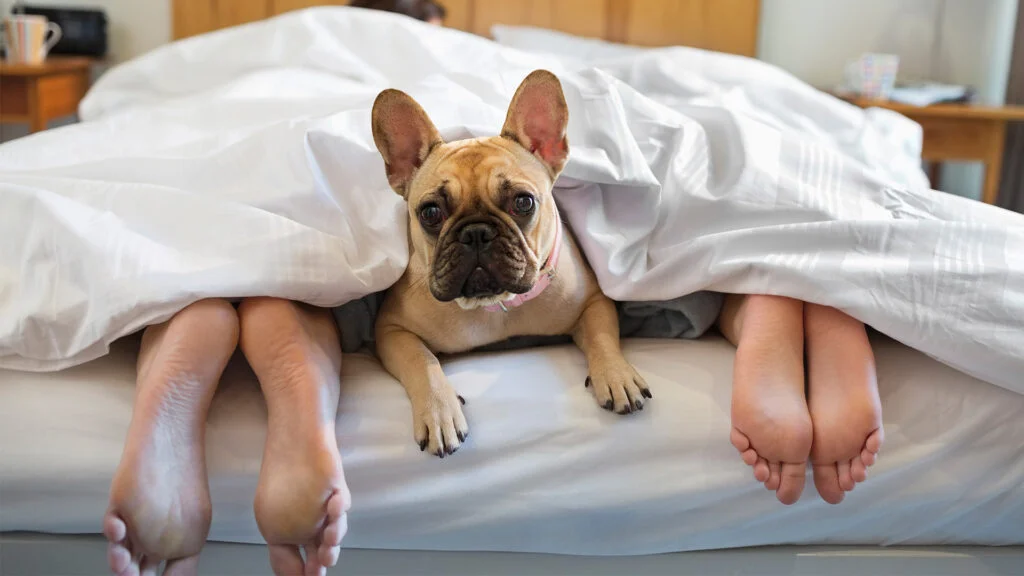
We all know late-night screen use, inconsistent bedtimes, and stressful life events might wreak havoc on our sleep. But there’s a new, much cuter culprit to consider, according to a new study published in March — our pets. Anyone who has owned a pet knows that there are the typical disruptions to sleeping, from barking at a late night package delivery to a cat getting too cuddly on top of your head in the wee morning hours. But now, research shows specifically that dogs are inhibiting owners’ sleep by causing more troubled sleeping, and also increasing the risk of having a sleep disorder. Cat-owners, on the other hand, have a higher prevalence of leg jerks at night.
The research was conducted by Lauren Wisnieski, PhD, Assistant Professor of Public Health and Research at Lincoln Memorial University. She drew from information in the 2005–2006 National Health and Nutrition Examination Survey Data, the most recent available on pets living in homes, the study explains, including input from 5,499 participants.
The responses might make you second guess adding more furry friends to your family. The study concludes dog owners had a higher prevalence of the following, compared to non-dog owners:
- trouble sleeping
- sleep disorders including sleep apnea
- feeling unrested and sleepy
- not getting enough sleep
- taking sleeping pills
- having leg jerks
Cat owners had some similar issues, with the most prevalent issue being increased leg jerks compared to non-cat owners. Pet owners had trouble falling asleep in 15 minutes as well (experts say most people without sleep disorders typically fall asleep between 10-20 minutes after shut-eye), and got fewer than 6 hours of sleep on average, compared to non-pet owners. In addition, they observed snoring and diagnosis of sleep conditions, along with night waking and generally feeling less rested, to determine how pets were impacting owners’ sleep. Researchers controlled for variables that would impede on study results.
The researchers couldn’t conclude the exact causes of the findings, though pet owners can speculate as to the many reasons their pets typically wake them up at night or cause sleep disruptions. They also acknowledged that pets have long been seen as an anxiety-relieving relationship, helping people have improved mental health and lower stress. But having a pet might be different than sleeping with one.
The National Institutes of Health reports benefits of having a pet, from lowered cortisol (stress) levels, to lower blood pressure. They also boost your mood and reduce loneliness. But the recent study shows that these limitations might be offset if you are co-sleeping with your animal, though the participants didn’t specify who was co-sleeping and who wasn’t.
This wasn’t the first study showing pet owners might get worse sleep — 2021 research from Sweden shows cat owners on average don’t reach the recommended 7 hours of sleep per night. That same study references previous research showing a fifth of cosleeping pet owners have disrupted sleep. If you know your pet is causing a sleep issue, or you suspect you aren’t as rested because of your pet, try moving them out of the bed, but in the same room. In addition, practice “off” and “no” commands, so if you are disrupted, you can get back to sleep quickly. Both you and your fuzzy companion will be happier with a well-rested human the next day.

























